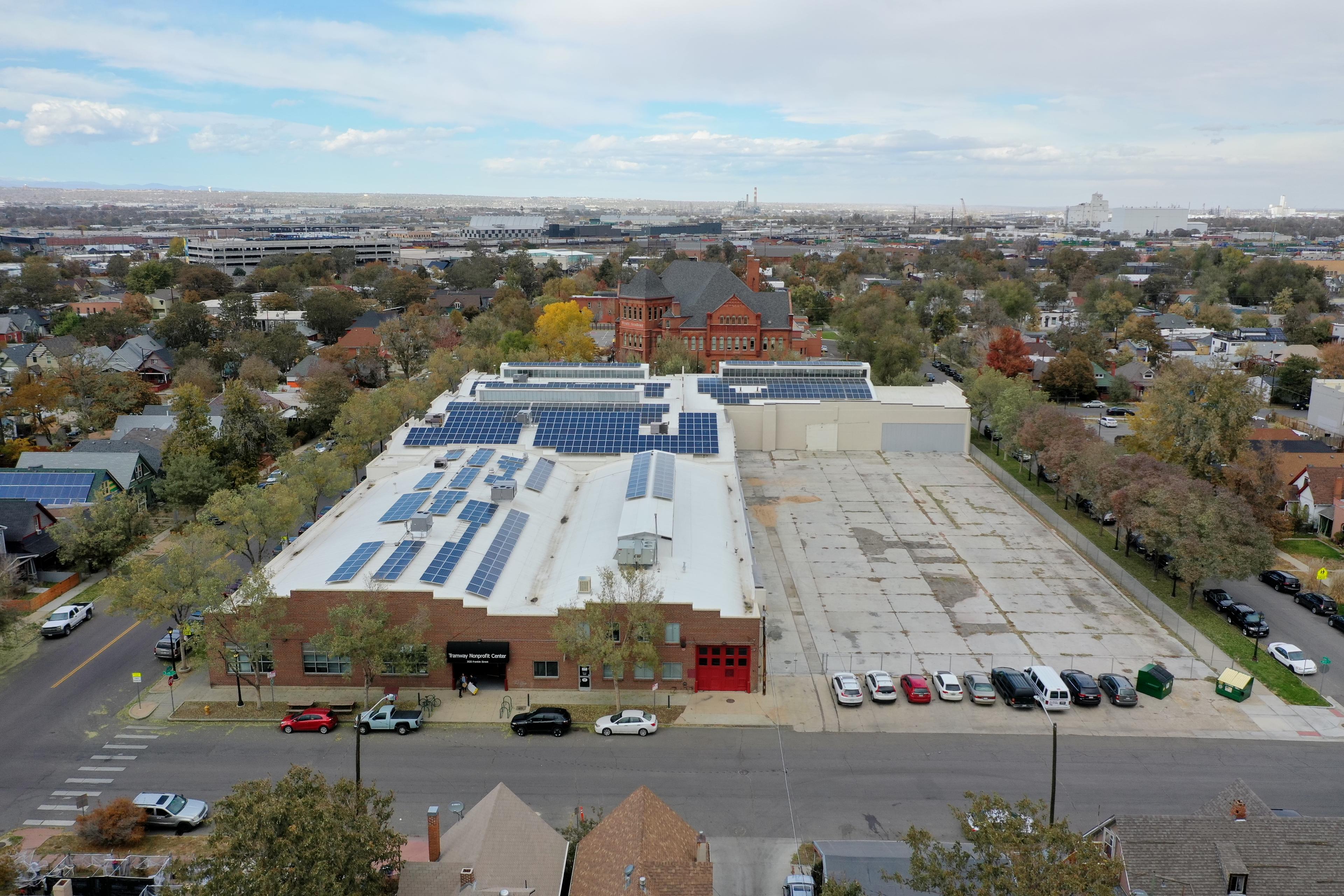The historic Tramway Nonprofit Center in northeast Denver is home to more than a dozen nonprofits. That’s set to continue long into the future — but with some new neighbors.
Urban Land Conservancy, the local nonprofit that owns the center and the property, hopes to build affordable housing on a vacant section of the block.
“Right now, that portion of the block is a vacant concrete pad, and we know that there is a better use for that,” said Andrea Burns, vice president of impact and engagement for ULC. “It's our mission to do affordable real estate for good. So we wanted to bring affordable housing to the Cole neighborhood.”
The Tramway block is bounded by Franklin and Gilpin streets and 35th and 36th avenues. The imposing brick building first served as a service and storage location for streetcars, with parts dating back more than a century.
It was previously owned by the late Charles “Chuck” Phillips, a local businessman and philanthropist who turned it into a space for nonprofits.
ULC previously tried to build affordable condos on the site a few years ago, but the project didn’t come to fruition. Now, the nonprofit and its developer, Medici Communities, plan to ask the city for a rezoning that will make development possible.
The rezoning will not allow taller or denser development than what is currently allowed, but it is necessary to fit the planned project in the space, Burns said. The block is currently zoned for four-story development; the new zoning would allow identical or lower heights across the block. ULC has described the proposal as a way to “update and modernize” the zoning of the property.
“It's about the challenges related to the unique aspects of the site itself, as well as the existence of an older building that we want to conserve,” Burns said.
ULC planned to file a rezoning application and other paperwork for the project this week, and has been discussing the proposal with community members for several months.
The project would offer a few dozen units of different layouts and sizes.
The housing project could rise to four floors, Burns said. ULC plans to keep the Tramway building itself largely in its current state.
ULC hasn’t yet decided how many units to build on the site. At four floors, the site can fit no more than 50 or 60 in total, Burns said. They’ll come in a variety of layouts and sizes.
“It wouldn't be a building full of studio apartments. For example, we want to be able to accommodate families," Burns said.
All the apartments will be subsidized and limited to lower-income people, though ULC hasn’t yet set the income limits. Medici would build and own the building, while ULC would retain ownership of the land in its community land trust, guaranteeing the apartments remain under affordability restrictions for 99 years.
ULC will keep the Tramway building as a hub for nonprofits, Burns said, providing space at about 30 percent below market rent. The organization hopes that the new housing could serve the clients of those nonprofits.
Many residents of historically Black neighborhoods like Cole have moved to Denver’s suburbs as a result of rising housing prices and gentrification. But those moves can put lower-income families farther away from the nonprofits and other services that often are clustered in the city center.
“And so many of those families are traveling from the outskirts of the metro area now to … be able to participate in some of those programs,” Burns said.
The rezoning would have to be approved by the Denver City Council. ULC is seeking a PUD, or planned unit development, for the property. PUDs are a kind of customized zoning status. ULC and Medici also hope that affordable housing tax credits will help fund the project.
If it happens, the project will fulfill one of the late Phillips’ ideas.
He had hoped to build housing on top of the Tramway building, Burns said. Phillips was the owner of an auto body shop, a salvage yard and other businesses.
He founded The Phillips Foundation and The Phillips Family Trust, which bought both the Tramway building and the historic Wyatt School. Phillips died in 2021.












